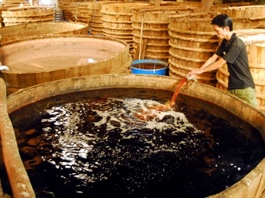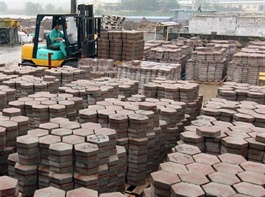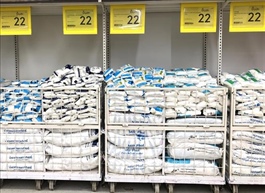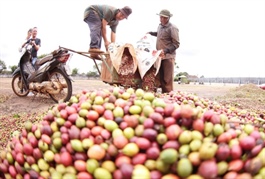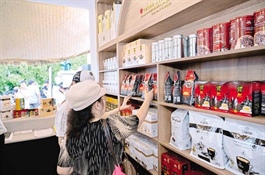Penalties to tighten on fake production
Penalties to tighten on fake production
As Vietnam intensifies efforts to protect consumers, the Ministry of Industry and Trade is putting forward a bold proposal to strengthen penalties against the production and trade of counterfeit goods.

Concerns are rising over widespread availability of fake and low-quality products, photo Le Toan |
The Ministry of Industry and Trade’s (MoIT) draft decree on penalties for admin violations in commerce, production, trade in prohibited goods, and consumer protection is under consultation. It seeks to address enforcement gaps, regulate e-commerce, and tighten oversight of online influencers.
One of the most striking changes in the draft is the significant increase in financial penalties. The maximum fine for producing and trading counterfeit goods is set to double to VND400 million (approximately $15,750) for organisations, and double to VND200 million ($7,900) for individuals.
For goods deemed to pose serious health or safety risks, such as food, pharmaceuticals, cosmetics, and medical devices, the draft allows for fines to be multiplied by two, further strengthening deterrent measures.
“The current level of monetary sanctions is no longer strong enough to ensure deterrence,” the MoIT noted in the explanatory document. “Adjustments are needed to match the severity of violations and the scale of harm caused.”
The push for stronger regulation comes amid increasing concern over the widespread availability of fake and low-quality goods, especially via digital platforms. According to enforcement reports, more than 450 cases of counterfeiting, tax fraud, and trade in goods of unclear origin were detected in just two weeks in May, with seizures valued at over $1.5 million.
In a direct response, Prime Minister Pham Minh Chinh issued instructions urging ministries and provinces to intensify inspections and clamp down on digital channels, particularly livestreaming and social commerce platforms, which are now a major distribution point for fake goods.
Reflecting this shift in consumer behaviour and marketing practices, the draft decree introduces unprecedented accountability measures for third parties. For the first time, key opinion leaders who promote fake or unverified products online can be fined VND100–200 million ($3,950–7,900). They may also be compelled to take down violating content, return any financial gains, and face a suspension from advertising for up to 12 months.
According to the draft, violations committed through livestreaming platforms or social media have caused significant challenges in state management. “Therefore, it is necessary to clearly define their responsibilities in providing information to consumers,” it said.
To close existing loopholes, the draft introduces more precise definitions of counterfeit goods. Products will now be classified as fake if they contain essential ingredients or functional components at 70 per cent or less of what is claimed on their packaging, labelling, or declarations. The clarification aims to address practical enforcement difficulties in sectors such as dietary supplements, fertilisers, and pesticides, where misleading ingredient claims are common but difficult to prosecute.
The draft also treats counterfeit labels, QR codes, registration numbers, and reused genuine packaging as independent violations. “The updated provisions aim to prevent sophisticated tricks in counterfeit distribution, especially through e-commerce, where physical inspection is limited,” the MoIT submission noted.
In parallel, the draft provides a clear framework for dealing with goods of unknown origin. Items sold via livestreams or on digital marketplaces that lack proper invoices, product labels, or certificates of ownership will be automatically classified as untraceable and subject to administrative penalties. These provisions are designed to eliminate ambiguity in enforcement and shift the burden of proof towards the seller, according to the drafting team.
The draft also responds to structural changes in Vietnam’s local admin system. In anticipation of this, the MoIT has revised provisions on the competence of enforcement agencies to ensure legal consistency and administrative clarity. The revised draft ensures alignment with the two-tier government model and recent reforms of inspection agencies, the ministry stated.
- 09:43 20/06/2025









